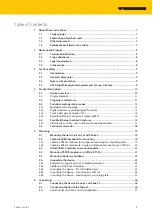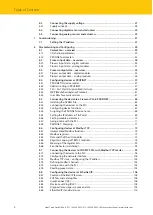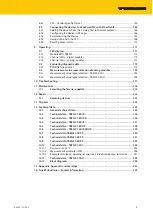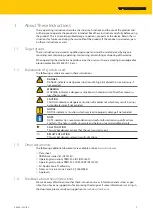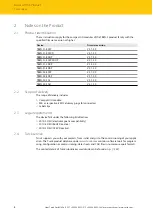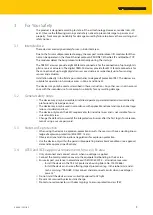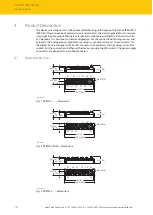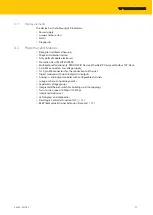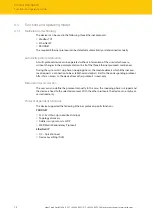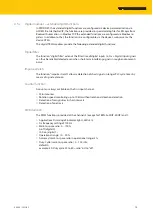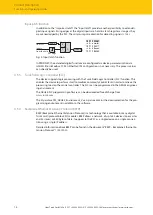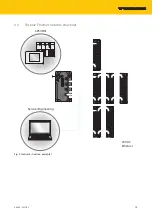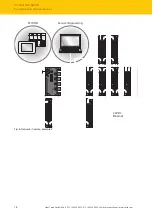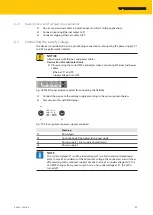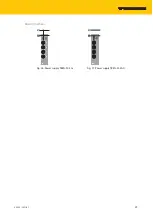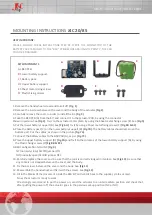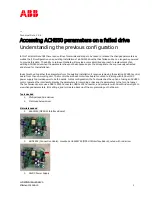
Product Description
Functions and operating modes
14
Hans Turck GmbH & Co. KG | T +49 208 4952-0 | F +49 208 4952-264 | more@turck.com | www.turck.com
Input latch function
In addition to the "impulse stretch" the "input latch" provides another possibility to extend di-
gital input signals. Rising edges at the digital inputs are hold in a latch register as long as they
are acknowledged by the PLC. The minimum pulse duration for detecting signals is 1 ms.
Ack x
Latch x
R
0
0
1
1
S
0
1
0
1
Q
x
1
0
1
State
Hold
Set
Reset
Reset
from PLC
from the field
Input x
Pos. Edge
R
S
Q
Fig. 4: Input latch function
In PROFINET, the extended digital functions are configured via device parameterization via
GSDML file. In Modbus TCP an EtherNet/IP a configuration is not necessary. The process values
can directly be used.
4.3.3
Turck Field Logic Controller (FLC)
The device supports logic processing with the Turck Field Logic Controller (FLC) function. This
enables the device to perform small to medium complexity control tasks in order to relieve the
processing load on the central controller. The FLCs can be programmed in the ARGEE engineer-
ing environment.
The ARGEE-FLC programming software can be downloaded free of charge from
The Zip archive SW_ARGEE_Environment_Vx.x.zip also contains the documentation for the pro-
gramming environment in addition to the software.
4.3.4
Backplane Ethernet Extension Protocol (BEEP)
BEEP (Backplane Ethernet Extension Protocol) is a technology that is available in many digital
Turck multi protocol block I/O modules. BEEP allows a network, of up to 33 devices (one master
and 32 slaves) or 480 bytes of data, to appear to the PLC as a single device on a single connec-
tion using a single IP address.
Detailed information about BEEP can be found in the document "BEEP – Backplane Ethernet Ex-
tension Protocol”
.



